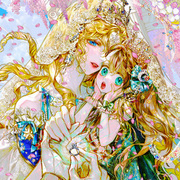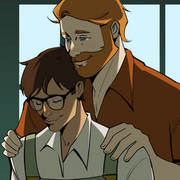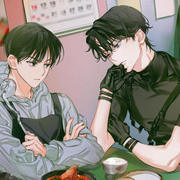Imogen
The next morning, the house is as silent as a tomb.
This silence is not normal. All around Berkeley Square, servants have been awake since dawn. They scurry around as usual, regardless of any event, momentous or not, in the life of the upper classes.
Chimneys must be cleaned, fireplaces must be replenished, floors mopped and ornaments dusted, and early morning tea brought up. The kitchens are already redolent with the fragrances of Peking tea leaves and crisp toast. In the square, the fishmonger makes his deliveries punctiliously in brown paper, followed closely by the butcher's boy and the early mail.
In Lockley House, a grim quiet prevails. Last night, the Earl of Lockley shouted at his wife for hours, according to the report brought to me by my abigail, Lucy.
"And he was ever so angry, my lady. Thomas told me when I was below stairs. He said that he found a broken decanter from where the Earl slammed his fist down on his study desk," says Lucy, her gooseberry pale blue eyes wide. "And Miss Graves said her ladyship cried all night."
My hands curl convulsively on the counterpane, embroidered with French silk flowers at great expense. I also cried until the early hours, wishing Mama would come to me. She must be furious. They both are.
The thought of Papa makes my heart contract. Mama's disappointment can only make me feel guilty. Papa, in a rage, is something else, a natural disaster leaving only shattered fragments in his wake.
"I'll get up, Lucy," I say quickly, wrenching at my lace nightcap. "Bring me my green twill half-robe. Or perhaps I'd better have the yellow walking dress."
I wish I still had the plain brown poplin dress with the high collar that I used to wear to Sunday chapel at Ambermere. But that was in the country, and here in London, all my clothes are too pretty to express sober repentance.
"And get me the maroon cloth pelisse," I add hurriedly. It might cover up the frills and make me look more humble. I know Papa will expect me to apologize. Mama will probably cry.
I wish I knew where Ian is at the moment. I think he went out early to ride, but I am unsure. Not that his presence would help me, but I feel he is my only friend in the world just now.
I go downstairs somberly, my hair drawn back in neat bands. The breakfast room is empty, and there is no food in the chafing dishes.
I would think I was alone in the house, if I didn't know better.
Jennings, our butler, comes into the room with his usual ponderous step.
"My lady," he bows, "the Earl requires your presence upstairs in his study. Would you like something to eat first? Some tea, perhaps?"
I survey his formidable bulk through suddenly blurry eyes. His paternal kindness is the last piece of mercy I can expect today, I think desolately.
"No, thank you, Jennings," I say, gulping back a sob. "I will go now."
I tread up the staircase to the first floor, sick with fear as though I am going to the guillotine. Papa will send me back to Ambermere in disgrace. I know he will.
And in one way, it will be a huge relief—but he will scold me first, and there will be that look of disgust on his face again, as though he cannot stand to think that he could have produced such an unruly child, and somehow I will have to bear it without crying. Papa loathes feminine tears more than anything else, apart from the Whigs at Carlton House, perhaps.
The door to his study stands ajar. Beyond the carved screen against the marble fireplace is a rustle of skirts.
But my attention is all on Papa, standing in front of his desk in his long black coat, hands behind his back.
"Imogen," he says, "you are seventeen years old today."
I blink. I have completely forgotten about that.
"By this time," Papa continues heavily, "I should have expected you to learn some manners. You have had all the lessons in comportment required for a young lady, not to mention dancing masters, drawing masters, lessons on the pianoforte and the harp, and I don't know what else.
"And yet,”—in the background, Mama sniffs dolefully—"You are uncivilized, unmannered, wild, and downright hoydenish. Can you explain why this should be the case?"
I hate when Papa does this. He makes accusations and then expects me to prove why he's right. Any excuses are anathema to him, dismissed as easily as the lowliest scullery maid.
"I don't know, Papa," I murmur hopelessly. "But I'm very sorry. I will never do it again."
"Oh, you wicked child!" bursts out Mama. She leans forward in her spindled chair, dressed in pure dove gray as though she is in mourning. "After everything your poor Papa and I have done for you, to disgrace us so thoroughly in front of the whole world!"
"He started it!" I cry out, stung by the injustice of the whole thing. "Seymour may be a Marquis, but he behaved like a boor! He—he tried to kiss me, Mama!"
"And why were you alone with him in the first place?" she fires back. "If you choose to behave like a common chambermaid, always skulking around corners, then any man might take advantage of you! How many times have I told you to stay close to me? Instead, you wander off, completely unchaperoned, and then expect my sympathy. Is that it?"
I stare at her, aghast. She is twisting a white cambric handkerchief viciously in her hands, her eyes screwed up with rage. I realize she is far too bent on excusing herself to Papa to spare any thought for me. He must have scolded her for taking her eyes off me last night.
"No gentleman would have done what Seymour did," I say quietly. "No matter what the circumstances were. I admit I behaved badly, but I was provoked. It won't happen again."
"No, it won't," says Papa, and something in his voice makes me look at him quickly. "You have made it impossible for any respectable woman in London to receive you in her house. The Seymours are saying that you are a hoyden and a madwoman. Last night, His Grace, the Duke of Mountford, even suggested I send you to an asylum."
I nearly laugh. Everyone knows that the Mountford line is itself tainted with madness. They cannot help themselves, being closely related to the old King George, but to say I should be the one clapped up in a madhouse—
"I will not go to such lengths," says Papa, "though I am sorely tempted. You can't remain in London, however."
"There is no question of it," interpolates Mama, throwing me a dagger-sharp glance. "I have received a note from Maria Sefton asking me to excuse her from attending my Venetian breakfast. You may be sure the rest of them will follow her in deserting this house. Nobody wants to keep company with a mad girl and her poor mother, my dear Arnold."
"Nor should they," says Papa in a bleak tone. "It is inconceivable to me how a daughter of mine could disgrace herself thus. You must go away, Imogen."
"Yes, Papa," I say submissively, thinking that at least Ambermere won't be so bad. As long as I don't have to go to parties and talk to eligible men anymore, I don't care where I am.
"You will go to Cyprus," says Papa, looking down his nose at me. "Your Mama's cousin writes that the island's governor requires a wife. I know the man slightly. His birth is not too high, and he will not object to your lack of London polish, I think. He wants a simple girl."
My mouth falls open.
"Don't gape, Imogen," Mama says irritably. "It is the best match you could hope for under the circumstances. Cousin Amelia says he is a very proper man, and besides, he served in your father's regiment during the Peninsular War. I hope you are grateful for his kindness in accepting your hand."
"Let us hope he has more luck taming you than we ever did," adds Papa, turning away as though it was a settled matter. I stare at his back.
Wild, incoherent thoughts rush through my mind. Thoughts of marrying a stranger set against the dismal prospect of becoming a spinster forever and withering away at Ambermere.
Thoughts of the proper man who would tame me, an unknown figure I already want to loathe.
Thoughts of getting away from London, not having to face any of Mama's fine friends after what has happened, never having to be scolded by Papa ever again—
Cyprus. The very name is filled with an exotic touch of adventure and romance.
"Very well, Papa," I say, my eyes fixed on the wooden parquet. Let him get the idea that I want to go to Cyprus now, and he will immediately revise his plans and send me to a nunnery instead. "As you wish."
"See to it that she's packed, Enid," says Papa, refusing to look at me. This may be the last time I ever see him, and to end seventeen years with a cold shoulder is exactly what I expect from a man who was always an Earl before he was a father.
Cyprus must be warm. Warmer than England, at any rate. I hug myself with secret joy.
At least the bloody season's done with now.












Comments (2)
See all